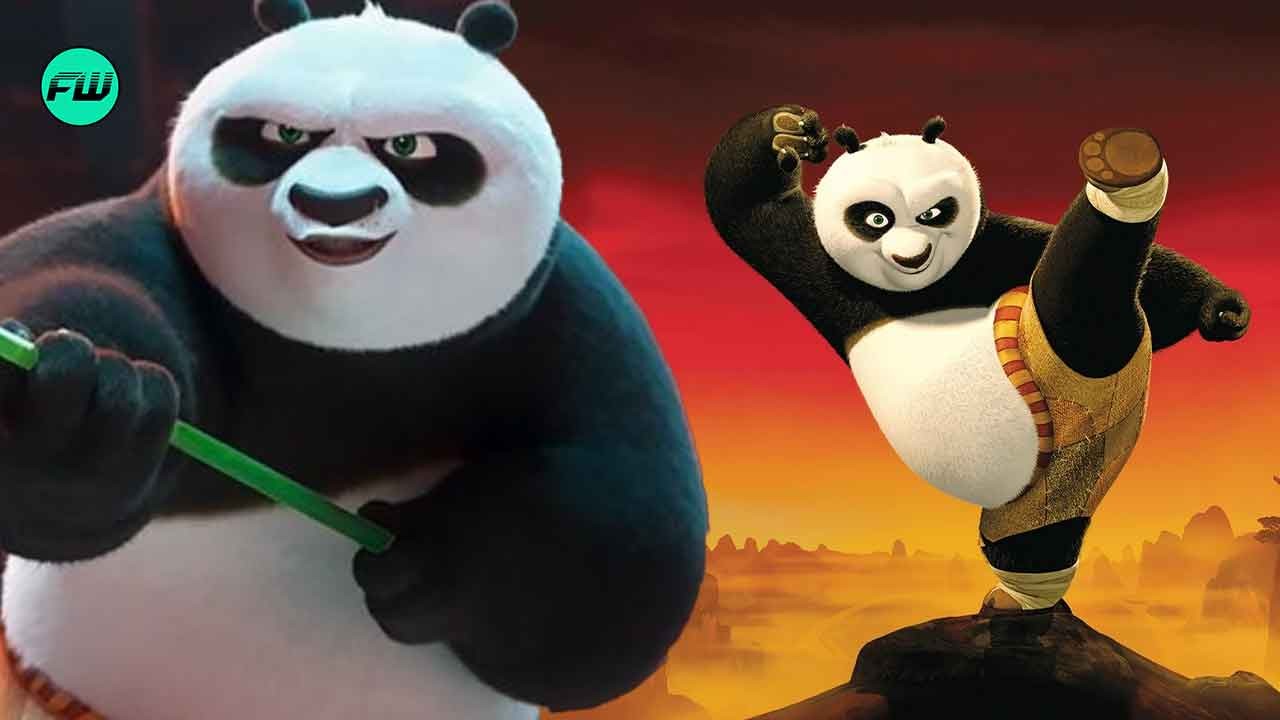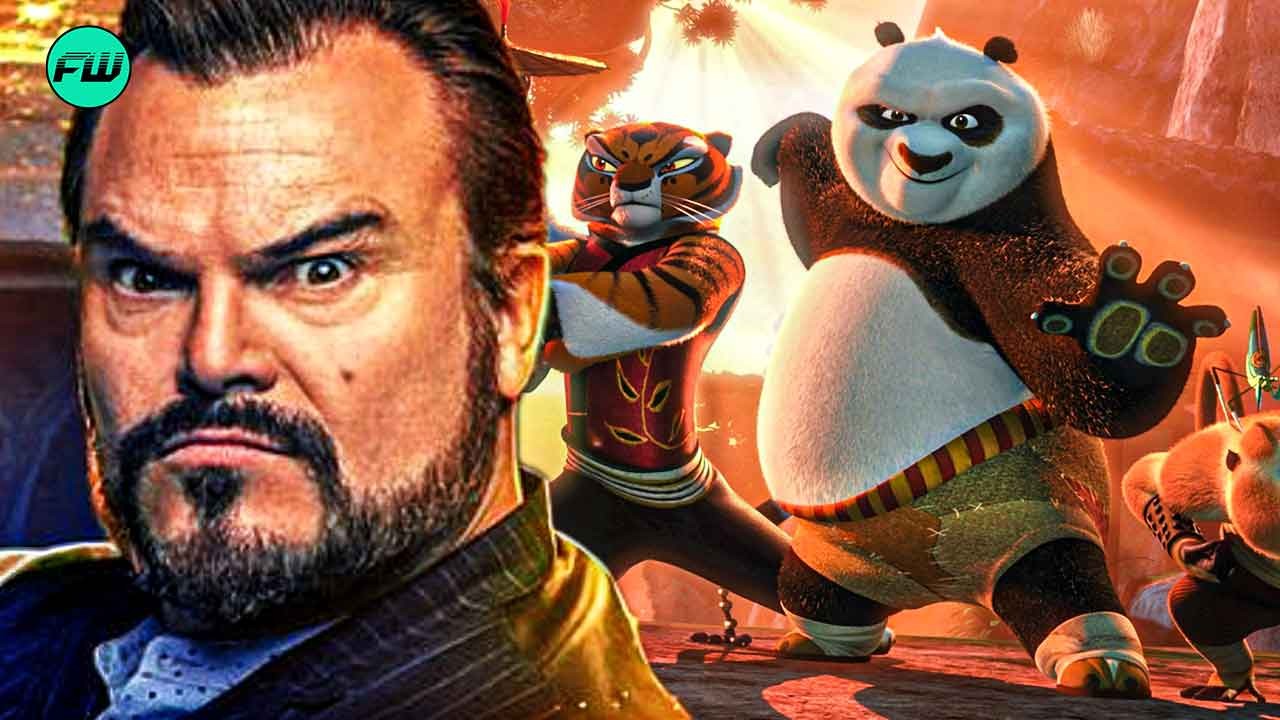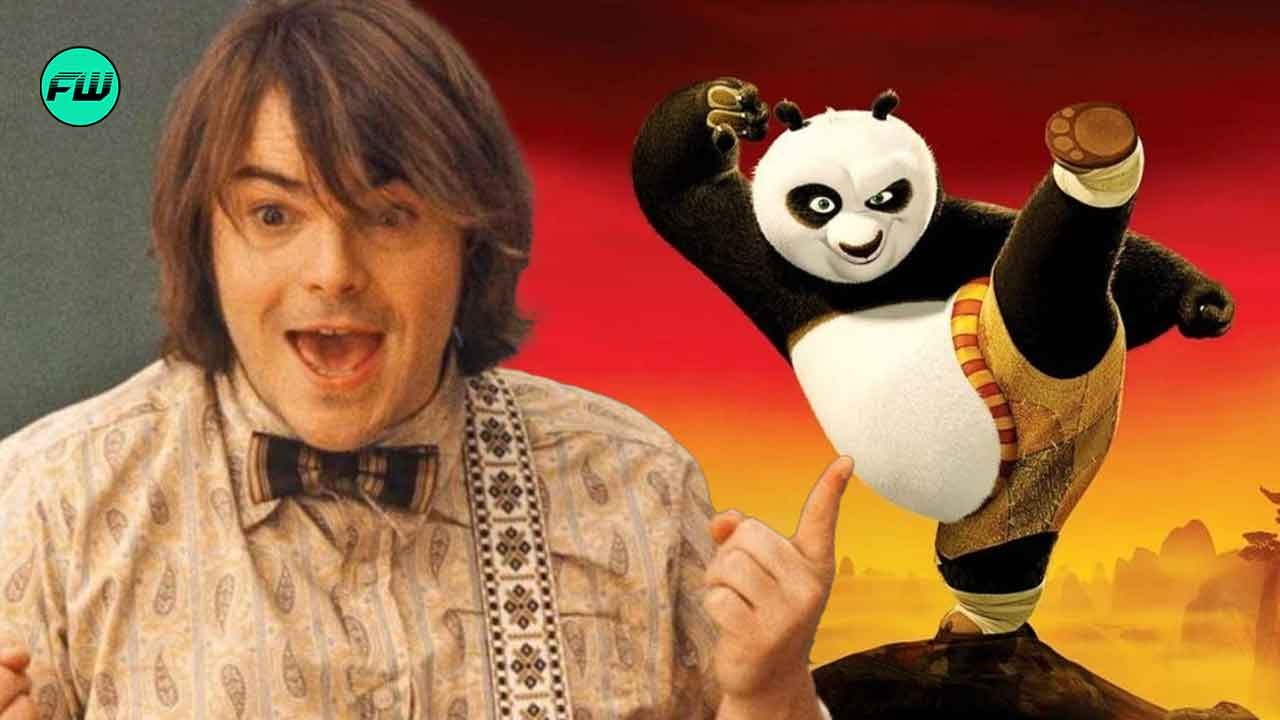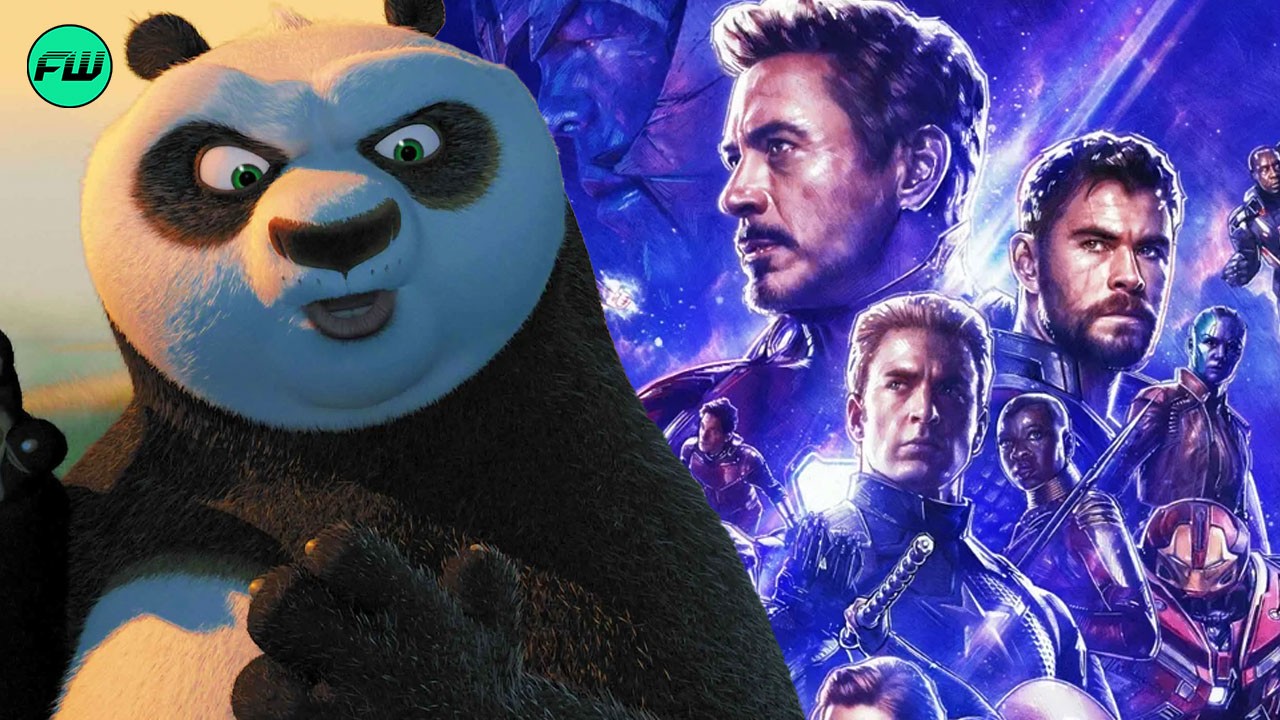The Kung Fu Panda franchise is awaiting the release of its fourth film, which has come a long way from its concept of an anthropomorphic animal learning kung fu. Starring Jack Black as Po, Kung Fu Panda 4 sees many familiar characters such as Master Shifu, Tai Lung, and Kai, while introducing new villains such as The Chameleon.
The first film was known for its bizarre concept of a Panda learning kung fu and was one of the most anticipated films of 2008. The film was one of the commercially successful films by DreamWorks Animation, earning over $631 million. While a simplistic comedy with action, the concept of Kung Fu Panda was reportedly inspired by the iconic film Kung Fu Hustle.
When Was Kung Fu Panda Developed?

The Jack Black starrer Kung Fu Panda was one of the most beloved animated franchises in the world. The franchise saw the journey of Po, a lazy yet excited Panda who accidentally gets named the Dragon Warrior and trains with Master Shifu to unlock his potential. The film followed his hero’s journey as he mastered the art of kung fu while also finding himself.
The concept of Kung Fu Panda was reportedly conceived by DreamWorks executive Michael Lachance, who also developed the story for Shark Tale (via Anime News Network). Initially conceived as a parody of action and classic wuxia films, the concept was pivoted to a more simplistic comedy with great action elements.
Co-director John Stevenson mentioned that when he and his co-director Mark Osbourne were brought on board the project, they wanted to stray away from the spoof aspect and take the material seriously. He said in an interview with Coming Soon,
“I don’t really think parody stuff plays much longer than about a ten-minute “Saturday Night Live” sketch…I wasn’t interested in making fun of them, because I really think martial arts movies can be great films, they can be as good as any genre movie when they’re done properly…We said, “Let’s take ‘Kung Fu Panda’ which is an idea everybody gets comedically, but then let’s try and surprise everybody by giving them more movie than they might expect from the title.”
The film was reportedly announced in 2005, with the lead cast of Jack Black, Dustin Hoffman, Angelina Jolie, and Ian McShane (via About Movies). Kung Fu Panda was in development for four years before releasing in 2008 with positive responses and great commercial success.
Which Movie Was Kung Fu Panda Inspired By?
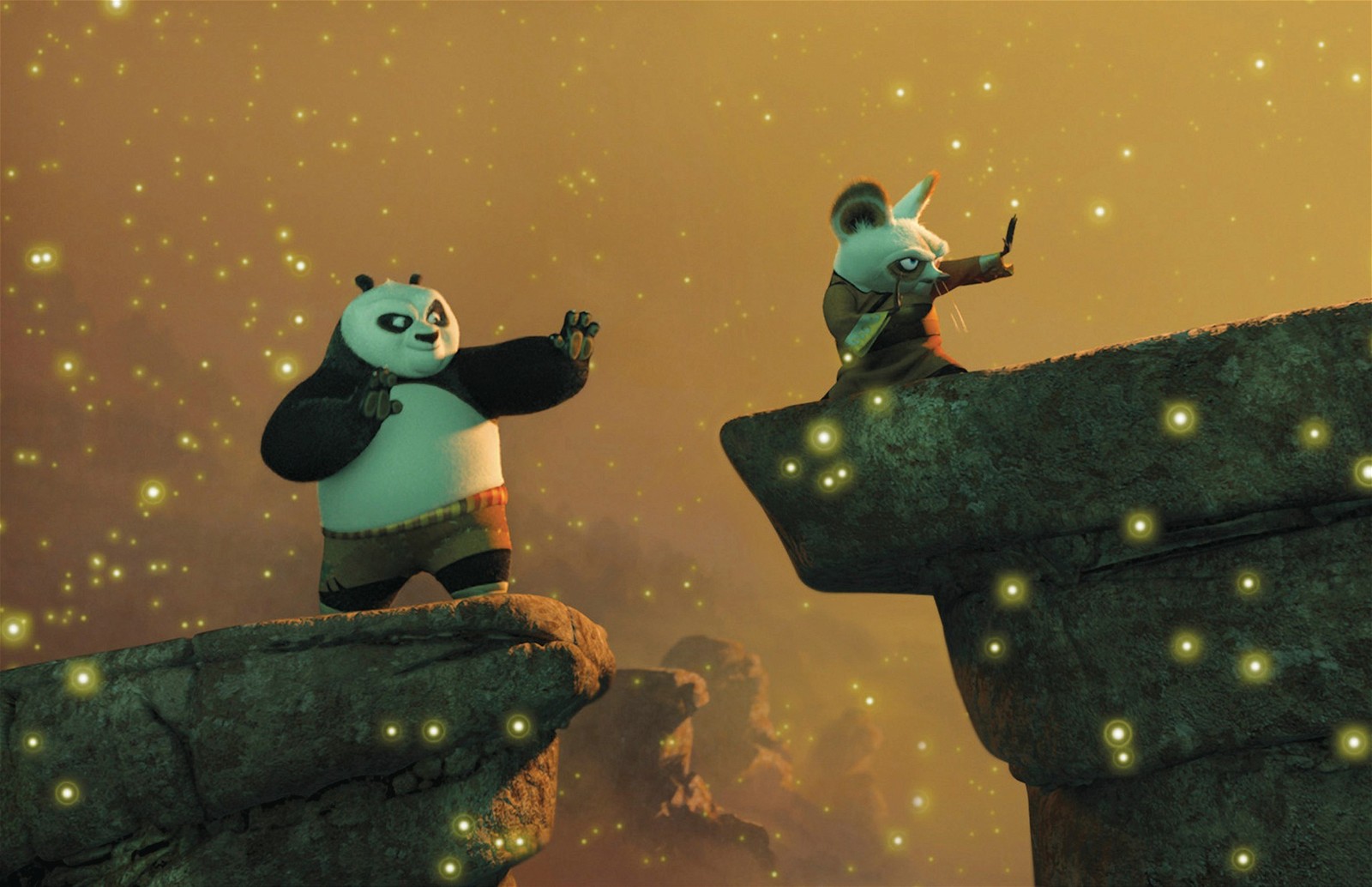
The Kung Fu Panda franchise has created a lore about anthropomorphic animals being kung fu masters and the world has only grown from Po’s personal story of coming-of-age. Initially conceived as a parody, the makers decided to take the genre seriously as there was an emotional component lacking in the spoof genre.
The makers reportedly took inspiration from many of the wuxia genre films, including masterpieces such as Hero, Crouching Tiger Hidden Dragon, and House of Flying Daggers. Production designer Raymond Zibach mentioned in an interview with Daily News that he and his art director Tang Heng took inspiration from many Chinese paintings and sculptures.
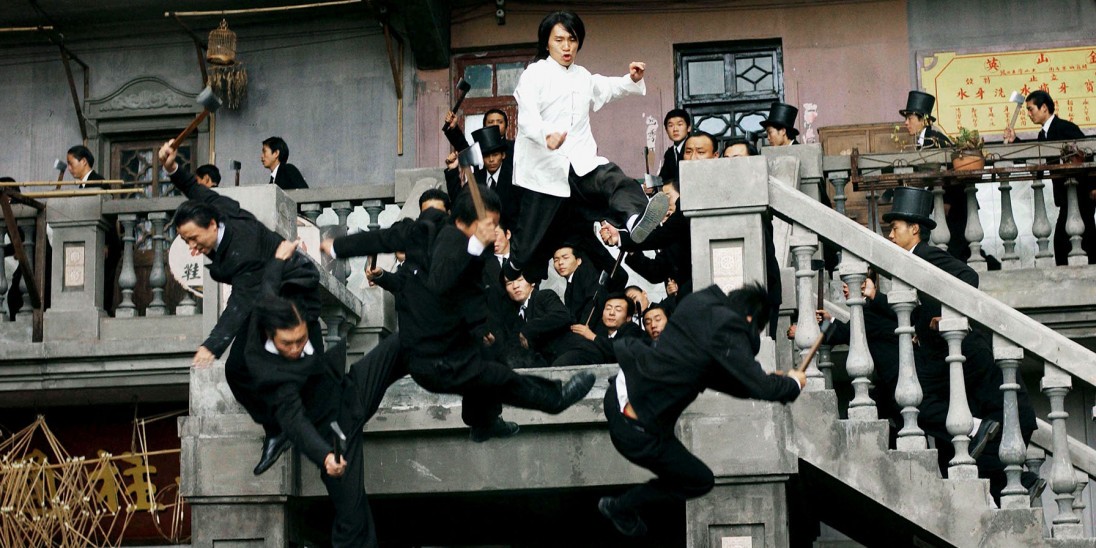
Zibach also mentioned that they were impressed by the use of colors in the wuxia films. He said,
“One of the bigger influences on me were films like ‘Hero,’ ‘House of Flying Daggers’ and ‘Crouching Tiger, Hidden Dragon.’ They’re kung fu movies, but they’re heavily art-directed with an emotional tie between color and what was happening on screen. I thought that came close to some of the great animated movies we’ve seen before ‘Bambi,’ where they used color emotionally.”
According to the Kung Fu Panda Wiki, the makers were also inspired by the 2004 martial arts comedy Kung Fu Hustle. The Stephen Chow directorial was known for its over-the-top action with martial arts and cartoonish special effects, which bordered on parody. The action comedy was a huge success, earning $104 million against a $20 million budget.
The concept of a martial arts comedy film that still had cool action sequences that stayed true to the art of kung fu was a similarity between the two films. Stephen Chow, who directed Kung Fu Hustle reportedly wanted to make films based on the wuxia films that he watched as a kid (via Spike). The film had a lasting legacy and has been regarded as a cult classic.

